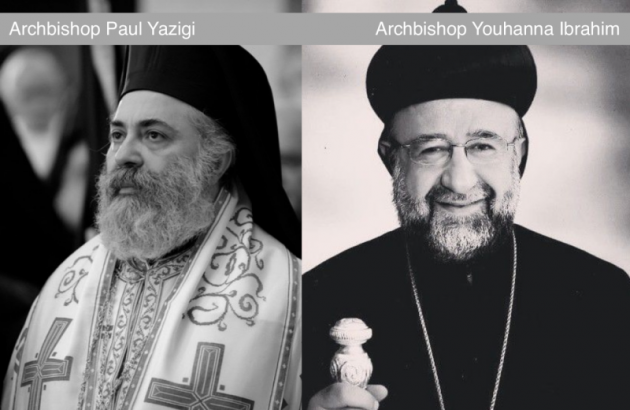World churches group prays for abducted archbishops of Aleppo held for 11 years

The World Council of Churches, in its morning prayers on April 22, focused on Armenia, Azerbaijan, and Georgia, solemnly marking the 11th anniversary of the abduction of archbishops of Aleppo.
The archbishops, Mor Gregorious Youhanna Ibrahim and Bishop Boulod Yaziji, were abducted on their way back from the Turkish border to their city of Aleppo.
The capital of the Aleppo Governorate, Aleppo, is the most populous governorate of Syria.
For more than a decade, there have been ongoing calls for the release of the church leaders.
Aleppo suffered massive destruction between 2012 and 2016 during the Syrian civil war when the city was at the center of major clashes between Syrian government forces and the opposition according to the Getty Center.
The WCC prayer asked for their comfort and that of their churches.
"We pray too for the liberation of all clergy and people of faith, who are held captive all over the world, that they are freed for the glory of your name," people prayed at the WCC.
"Grant rest where the righteous repose to the souls of all who have died as martyrs of the faith."
As part of the Ecumenical Prayer Cycle, the WCC and people worldwide prayed with and for the people and churches of Armenia, Azerbaijan, and Georgia.
Nino Sadzaglishvili, a student at the WCC's Ecumenical Institute at Bossey from the Georgian Orthodox Church, offered a reflection.
She explored how biblical shepherds, when caring for their flocks, were not practicing a passive form of love—but an active one.
"The laying down of the soul, the crucifixion, and the resurrection are voluntary, redemptive works of the Lord, just as the creation of the whole world is a work of love!" she said. "Active love = this is what the modern world needs."
Aleppo is one of the oldest continuously inhabited cities in the world; it may have been inhabited since the sixth millennium BC, according to Wikipedia.
More than 80 percent of Aleppo's inhabitants are Sunni Muslims, says the website.
They are mainly Syrian Arabs, followed by Turkmens and Kurds. Other Muslim groups include small numbers of ethnic Circassians, Chechens, Albanians, Bosniaks, Greeks and Bulgarians.
Until the beginning of the Battle of Aleppo in 2012, the city contained one of the largest Christian communities in the Middle East.
There were many Oriental Orthodox Christian congregations, mainly Armenians and Assyrians (locally known as Syriacs). Historically, the city was the main center of French Catholic missionaries in Syria.[162]
The Ecumenical Prayer Cycle takes the WCC through every region of the world over a year. Praying for each place on earth and its people at least once a year, the WCC affirms its solidarity with Christians all over the world, living in diverse situations, experiencing diverse problems and sharing diverse gifts.
Aleppo lies about 120 kilometers (75 miles) inland from the Mediterranean Sea, on a plateau 380 meters (1,250 feet) above sea level, 45 km (28 miles) east of the Syrian-Turkish border checkpoint of Bab al-Hawa.
The city is surrounded by farmlands from the north and the west, widely cultivated with olive and pistachio trees. To the east, Aleppo approaches the dry areas of the Syrian Desert.
